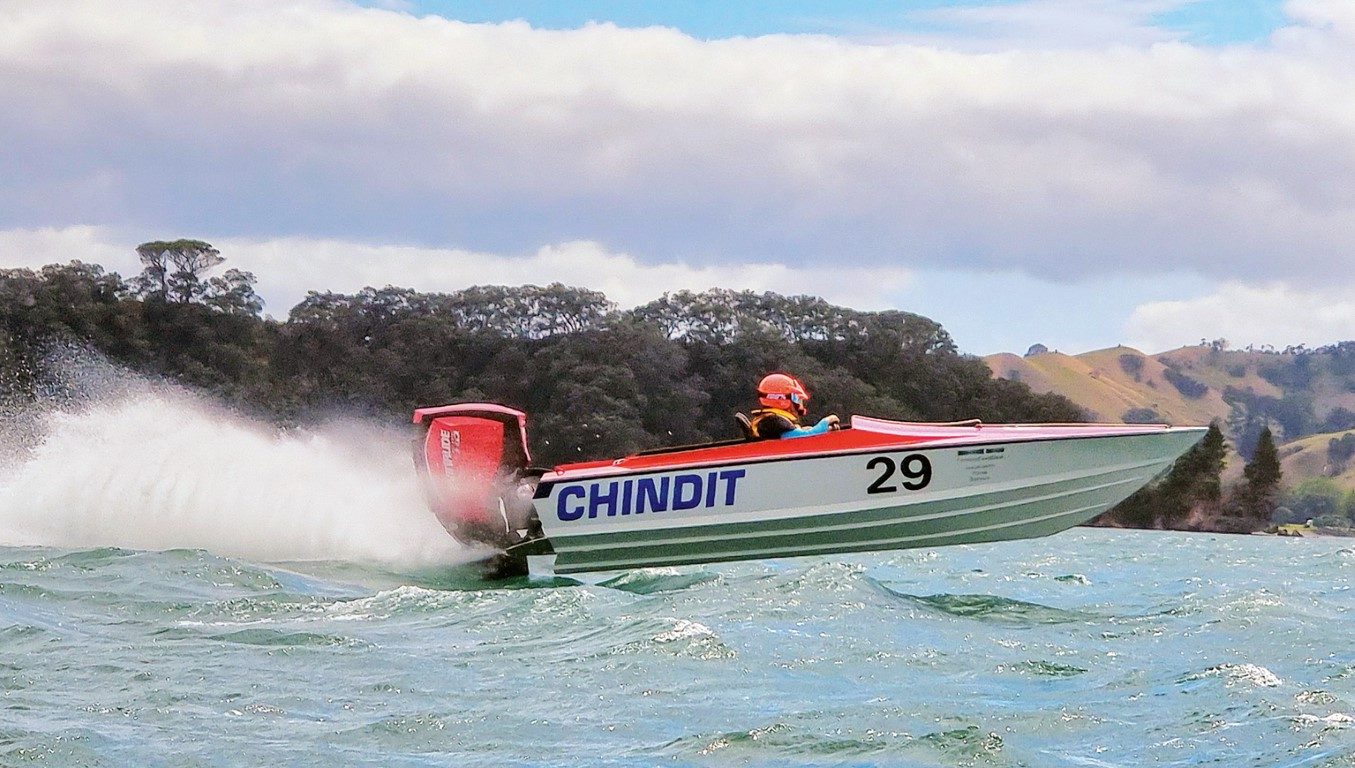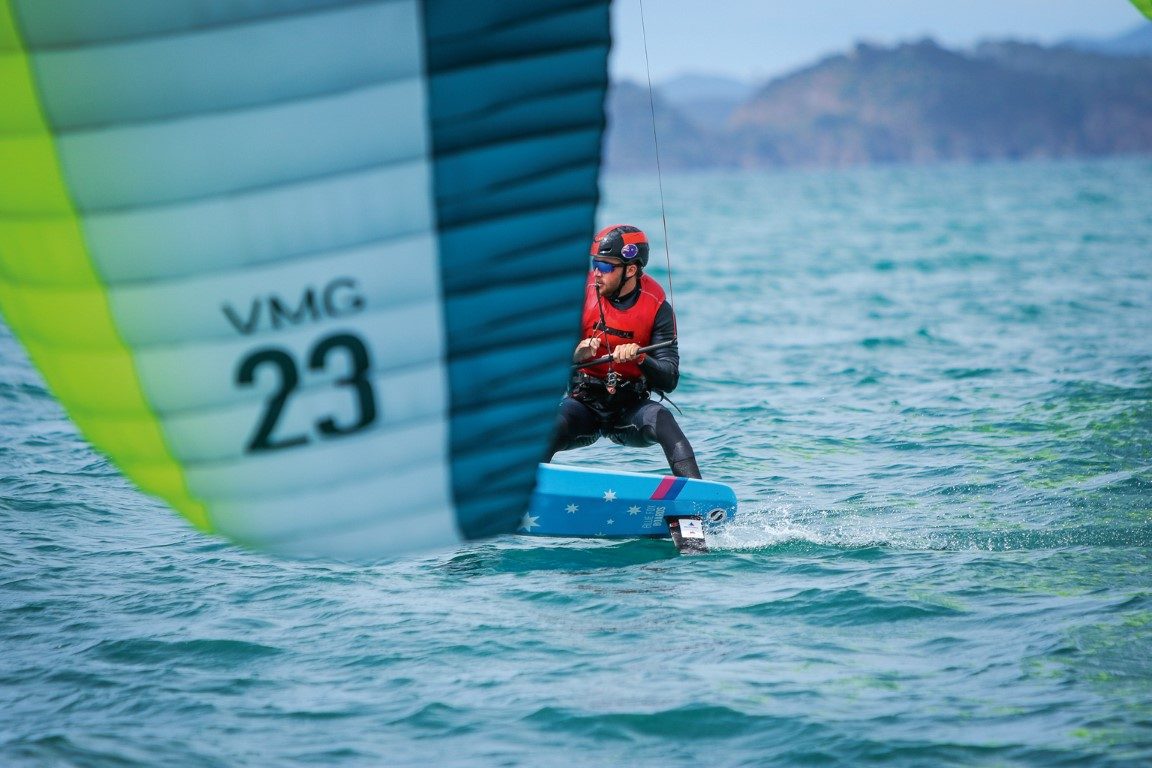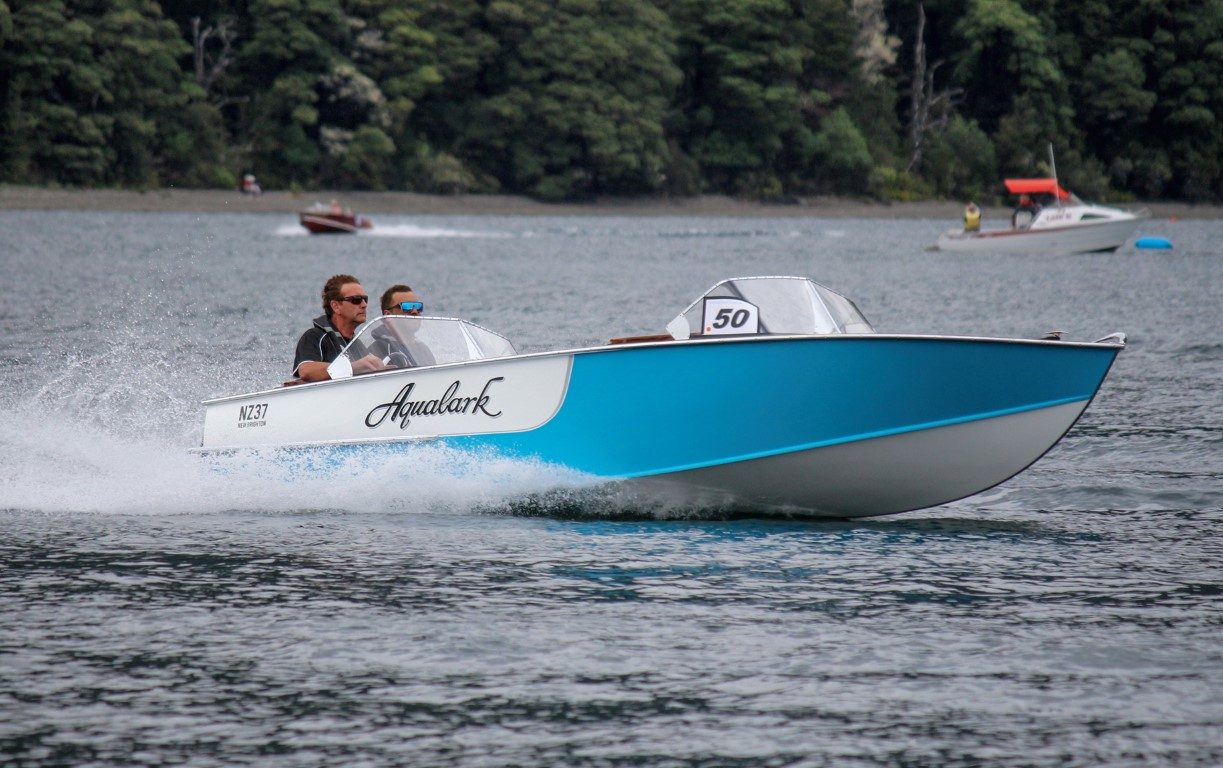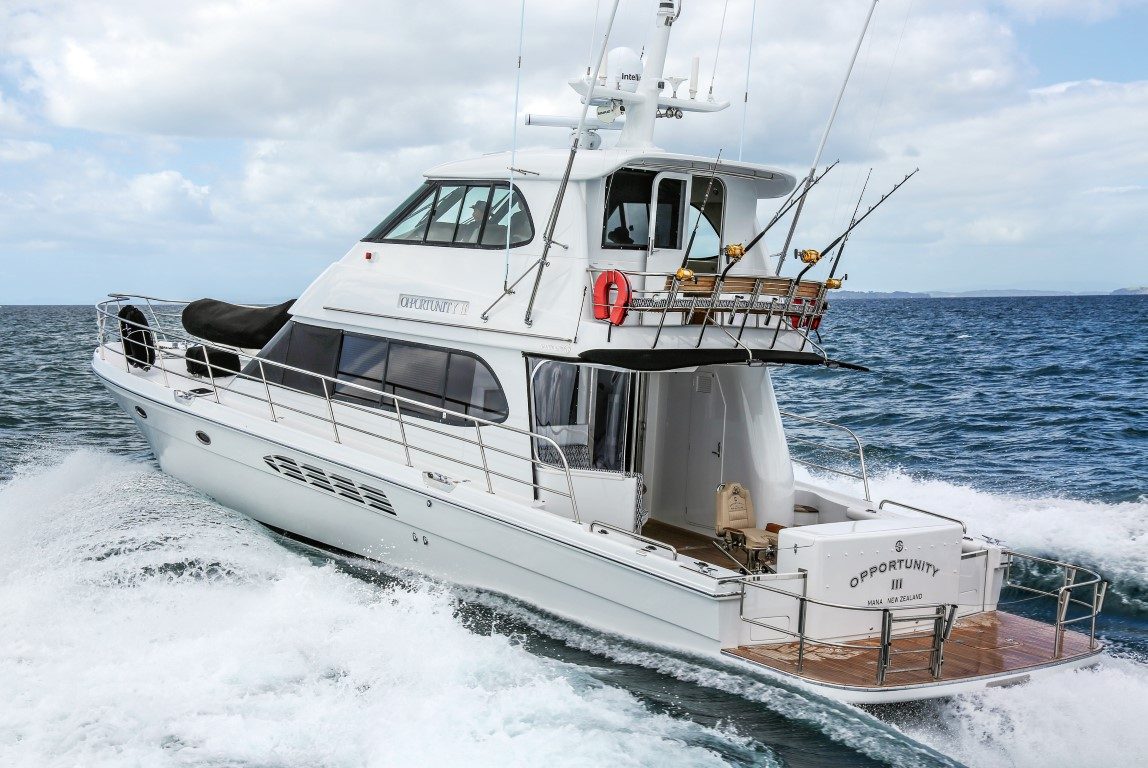

What began as a drag race for sailors, open to everyone and with no handicaps, will celebrate its 40th start this October. By Fran Holland.
In 1982 a real entrepreneur and extroverted sort of fellow called Roger Dilly suggested to the committee of the Auckland Multihull Sailing Association (later to become NZ Multihull Yacht Club), a drag race from Devonport to Russell, loosely based on the speed record attempts of the 1930s and 1950s.
“I was tired of being the poor cousin,” says Roger. “People who sailed multihulls were considered fruit loops. The general comment was, ‘why don’t you get yourself a real boat?’. So I thought, well, why don’t we organise our own race”.

The original idea was to have an all-out blast up the coast, open to anybody, no handicaps, no restriction, no classes. The first one from Auckland to the Bay of Islands was the winner.
After some discussion with the AMSA committee, it was decided to divide the fleet into one multihull division and several monohull, by length, but no handicap (handicaps were included later).
And then there was the name. With no sponsor, it was time to make one up! After Roger saw Bob Hope play a round of golf called the Bob Hope Classic, the Coastal Classic was born. And the rest, as they say, is history.

In just three years the Coastal Classic went from 12 entrants in 1982 to just under a 100 in 1985. “This actually caused a bit of a headache,” says Roger. “Sailors were getting a little too raucous at the Russell prizegiving. I realised I needed some entertainment to keep things under control. It just so happened Billy T James was in Paihia so I got him across on the boat, paid him some cash and within seconds Billy T had the crowd eating out of his hands. From there on in, entertainment became an important part of the Classic.
Krisis, skippered by Duncan (Cookie) Stewart won the inaugural 1982 race in a time of 18 hours, a time that was unbeaten for four years.
In the early days of racing, with no sponsor, finding money for prizes was somewhat difficult. But, there was a solution. Roger owned a second-hand shop so if you were one of the winners you could find yourself with a black and decker drill – second-hand of course!

The popularity of the Coastal Classic enticed many a professional sailor. Peter Blake used the 1987 race as an opportunity to gain multihull experience. Grant Dalton used it as a training run for his new round the world boat Fisher & Paykel. Even Jimmy Spithill got in on the act – sailing on Simon Hull’s Frank Racing (formerly Team Vodafone) in 2017.
1985 saw the brand new Split Enz, a 12-metre catamaran designed by Ron Given and owned by syndicate of Neil Strong, Jason Price and Rudy Dekker, outstrip all competition, setting a new race record of 17h 6m 48s.
Multihull enthusiasts were beaming with pride when Afterburner took line honours in 1987 and 1988, slashing the race record by almost five hours with a time of 12 hours and 30 minutes in 1987, and setting a new record of 9 hours and 20 minutes in 1988.
Then it was Split Enz’s turn to hold the record from 1990 to 1994, until Afterburner took line honours in 1995, breaking Split Enz’s winning streak, although Split Enz went on to hold the record for the next 14 years!

But let’s not forget the monohulls. 1989 was the first year a monohull took line honours. Emotional Rescue crossed the line first after 19 hours and 7 minutes of windward slog – with 50 knots around Cape Brett!
While Multihull New Zealand prides itself on its safety record, not all years were created equal. 1997 saw carnage and catastrophe as four boats were serious casualties of 30-knot winds. Alistair Russell of Afterburner flipped and capsized off Kawau Island. Sundance struck a submerged object (believed to be a whale or a log) near Sail Rock and the yacht started to go under. The Snark, owned and helmed by Phil Hart, lost her mast off Takapuna and Breeze Bender followed suit off Kawau.
Huge waves, squally winds and torrential rain played havoc in 2008. A full 28 hours after the start, only 31 of 229 starters had finished the race. The winner, Taeping – skippered by Greg Roake – crossed the finish line just after midnight.
2003 marked the entry of hi-tech canting keelers and water-ballasted keelers into the fleet for the first time, presenting the prospect of a greater challenge to multihulls than ever before. Despite this, Rogntudjuu, the giant Noumea catamaran, was first over the line. Former America’s Cup boat NZL41 was the first monohull to finish.

The New Zealand super-maxi Konica Minolta, made yachting history when it set a new race record in 2005. At 98 feet, it completed the course in 8 hours and 29 minutes, comfortably beating the record of 9 hours and 22 minutes. However, despite the record, Konica wasn’t the first boat across the line. The first three place-getters were multihulls: the Noumean entry called Rongtudjuu, followed by Isis (Murray Ross’s yacht on which Dennis Conner was sailing) and X-Factor.
Records tumbled in 2009 with Super-maxi Alfa Romeo making history when she crossed the finish line to set a new race record of 6 hours, 43 minutes and 32 seconds (wiping the 14-year-old record held by Split Enz). The swing-keeled 30-footer Overload set a new record for keelboats under 9.14m, finishing in 10 hours and 23 minutes.

2011 and 2014 saw Team Vodafone Sailing break records. Five hours, 44 minutes and 31 seconds was all the time it took for Team Vodafone Sailing to sail the Coastal Classic racecourse in 2011. 2014 was a race of record-breaking propositions with Team Vodafone Sailing taking a staggering 28 minutes off its previous race record, finishing in five hours, 13 mins and 21 seconds. This marked the achievement of a decades-long ambition for the boat’s owner, Simon Hull, who bought Team Vodafone Sailing to New Zealand, specifically for this reason. Team Vodafone Sailing – later renamed Team Frank Racing – would go on to win every race until 2019, when Beau Geste took the honours, also setting a new race record of just 5hrs, 37 seconds.
2020 – the race that wasn’t! With painfully light winds, only 16 boats reached the finish line off Russell Wharf in the traditional manner. At 3:58am Saturday morning, New Zealand Ocean Racing finished the 119-nautical-mile course with an elapsed race time of 18 hours, nearly triple the time set by the last monohull winner (and monohull record holder ) Alfa Romeo back in 2009. 135 boats made the difficult decision to retire from the race. But that’s sailing folks!
Then there was Covid!

And now 2022 sees the Coastal Classic celebrate 40 years! A huge milestone and achievement. So, what is it about this race that keeps people coming back for more? Roger Dilly says, “yes, I wanted a race, but it was more than that. It’s about the camaraderie, the adventure, and the spirit of the event. This beautiful course is just long enough to be the longest sail most people will do. It’s a mental challenge but a challenge worth doing.”
To celebrate and mark this epic 40-year race, the Multihull New Zealand Yacht Club is offering the chance to win two return tickets to Barcelona in 2024 – the home of the America’s Cup!
Anyone is eligible for this prize – crew, or boat owners. All you have to do is enter, register your vessel and crew, compete, and attend the prizegiving. You could be on your way to Barcelona!




